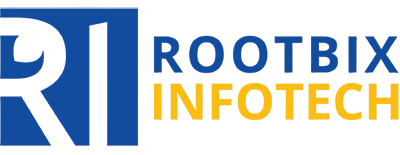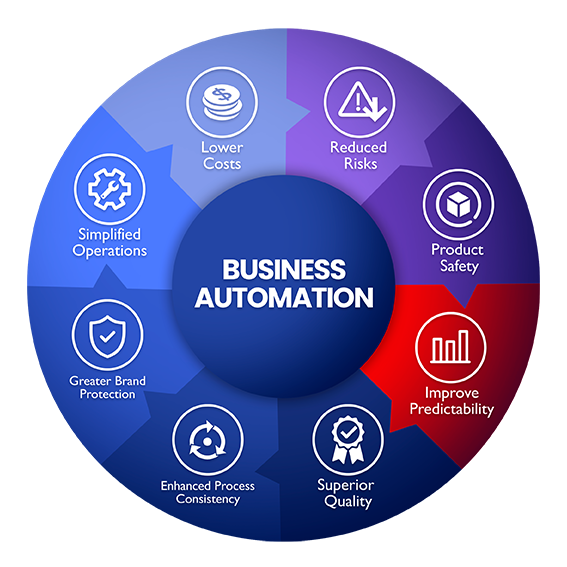How a Learning Management System (LMS) Can Be Time and Cost Effective for Product and Service Companies

In today’s fast-paced business environment, organizations across industries are constantly seeking ways to improve productivity, streamline processes, and reduce costs. One powerful tool that companies, whether in the product or service sector, are increasingly turning to is a Learning Management System (LMS). An LMS enables businesses to efficiently manage, deliver, and track employee training and development programs online, leading to significant savings in both time and costs.
At Rootbix Infotech, we understand the importance of staying competitive through continuous learning and employee development. By leveraging a robust LMS, companies can improve workforce skills, enhance product and service quality, and ultimately boost their bottom line. Here’s how implementing an LMS can make a real impact on your organization.
1. Standardized and Scalable Training
In both product and service companies, training is an ongoing process. Whether it’s onboarding new hires, upskilling current employees, or delivering product knowledge, ensuring consistency in training materials is critical. An LMS allows companies to create standardized training programs that can be easily scaled to accommodate employees at various levels, across multiple locations, and for different job roles.
For product companies, an LMS can provide uniform product training to sales and technical teams, ensuring they have the latest knowledge on product features, updates, and specifications. Service companies, on the other hand, can benefit from standardized customer service training or compliance programs, ensuring that every employee is aligned with the company’s expectations and standards.
This consistency eliminates the variability that can occur when training is delivered in-person or by different trainers, ensuring that all employees receive the same high-quality instruction, no matter where they are located.
2. Reduced Training Costs
Traditional training methods, such as in-person seminars, workshops, or conferences, often come with significant costs. These can include travel expenses, venue rentals, instructor fees, printed materials, and lost productivity due to time spent away from work. With an LMS, companies can drastically reduce or even eliminate many of these expenses.
Once an LMS is set up, online training modules can be accessed from anywhere, at any time. This flexibility allows employees to complete their training without the need for expensive travel or time-consuming classroom sessions. Additionally, training materials can be reused and updated easily, reducing the need for repeated investments in new content creation.
For example, a service company that requires annual compliance training for its employees can upload a single online course to the LMS. Employees can complete the course at their convenience, without the company having to arrange multiple in-person sessions or pay for external trainers year after year.
3. Improved Employee Productivity and Retention
Continuous learning is essential for keeping employees engaged and motivated. A well-implemented LMS allows employees to access personalized learning paths based on their roles, skill levels, and career development goals. By providing relevant and timely learning opportunities, companies can boost employee productivity and job satisfaction.
For product companies, regular training can keep sales teams up-to-date with the latest product offerings, ensuring they can effectively communicate value to customers. In service companies, employees who have access to customer service or soft skills training can provide better client interactions, improving overall service quality.
Additionally, an LMS helps reduce the time employees spend away from their core duties. By offering training in a self-paced, flexible format, employees can integrate learning into their schedules without significantly disrupting their workflow.
Employee retention is another major benefit. Companies that invest in employee development through ongoing training are more likely to retain their talent. Employees feel valued and are more likely to stay with an organization that actively supports their growth and development.
4. Enhanced Tracking and Reporting
One of the biggest challenges of traditional training methods is the difficulty in tracking progress and measuring the effectiveness of training programs. An LMS provides detailed analytics and reporting features that allow companies to track employee performance, training completion rates, and skill improvements in real time.
Managers can easily monitor which employees have completed required training, identify knowledge gaps, and track progress toward specific learning objectives. This data can be used to make informed decisions on future training initiatives, ensuring that the company is investing in the right areas to enhance productivity and performance.
For service companies, tracking customer service training completion rates or compliance certifications ensures that employees are fully prepared to meet regulatory and organizational standards. Product companies can track sales team certifications on new product launches, ensuring that their teams are ready to deliver accurate and compelling sales pitches.
5. Faster Onboarding and Skill Development
For both product and service companies, onboarding new employees efficiently is key to getting them productive as quickly as possible. A well-structured LMS can accelerate the onboarding process by providing new hires with all the necessary training materials in one centralized platform.
Rather than spending days or weeks attending in-person onboarding sessions, new employees can access company policies, product knowledge, and role-specific training modules through the LMS. They can complete training at their own pace, ensuring that they acquire the necessary skills to contribute to the team quickly.
In product companies, this means that new salespeople or engineers can get up to speed on products faster. In service companies, new customer service representatives can start interacting with clients sooner, all while maintaining the company’s standards of excellence.
6. Adaptability and Customization
An LMS provides a high level of adaptability, allowing companies to customize training programs to meet their specific needs. Whether it’s industry-specific training, technical certifications, soft skills development, or leadership training, an LMS can accommodate a wide variety of training types.
Product companies can tailor product-related training to different teams, from sales to technical support, ensuring that each group has the relevant knowledge. Service companies can customize customer service training based on regional preferences or client types, offering more personalized learning experiences.
Furthermore, as businesses evolve, the LMS can be quickly updated to reflect new processes, policies, or product offerings, ensuring that the training remains relevant and effective.
Conclusion
A Learning Management System is not just a tool for training—it’s a powerful investment in the future of your workforce and your business. By reducing training costs, increasing efficiency, and providing employees with access to continuous learning, an LMS can help both product and service companies become more agile, competitive, and successful.
At Rootbix Infotech, we understand how crucial it is to provide employees with the right learning opportunities at the right time. By implementing a well-designed LMS, companies can unlock new levels of productivity, enhance employee engagement, and drive long-term success.
Gayatri Sharma is the Director of Rootbix Infotech Pvt Ltd, a leading provider of sourcing, staffing, and IT solutions.






